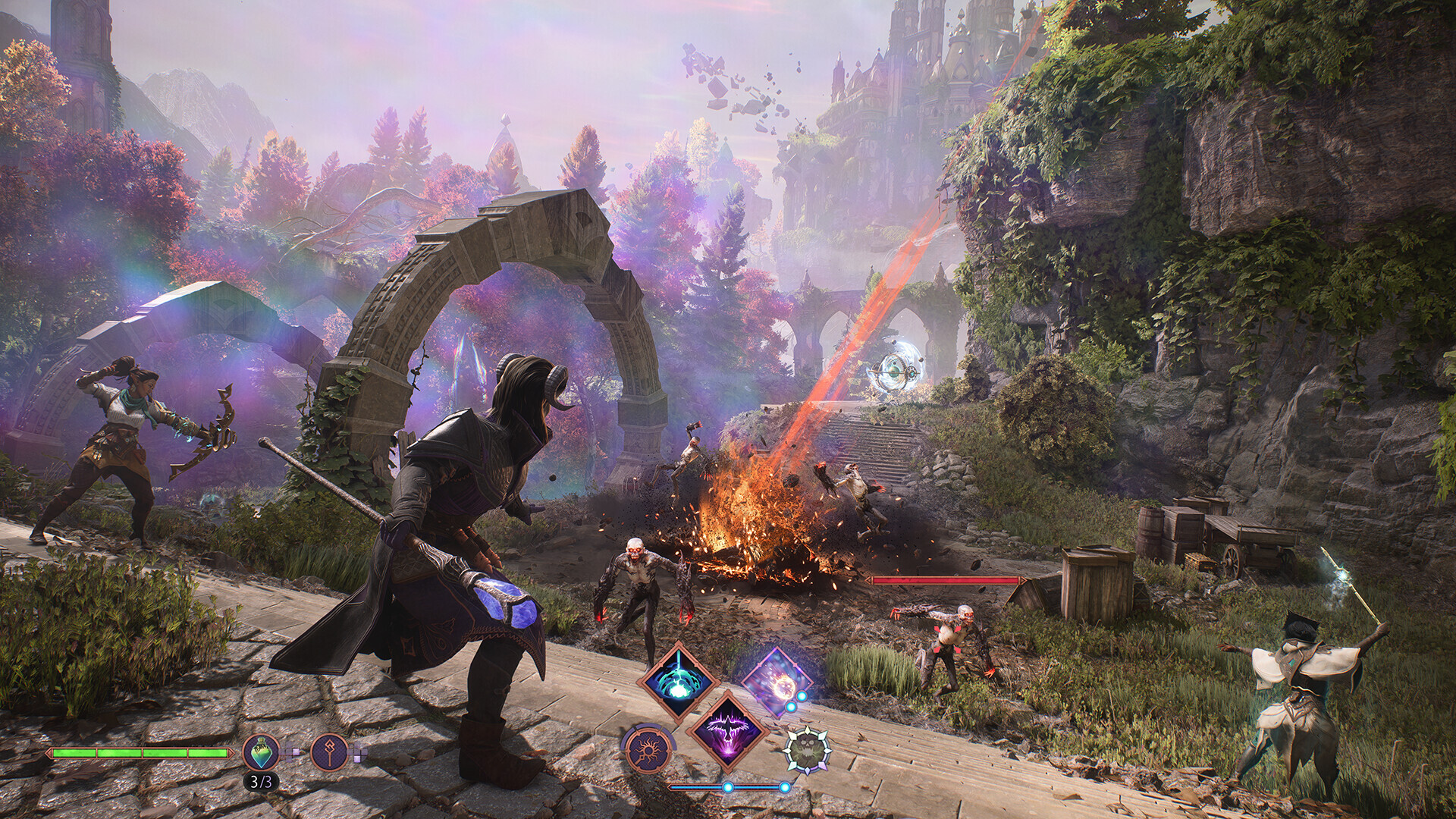Released on October 31st last year, Dragon Age: The Veilguard is a title that took a significant amount of time to develop and was released in a complex context. The previous installment, Inquisition, dates back to 2014, and Bioware faced numerous challenges, including the critical and commercial failure of Mass Effect Andromeda. With an estimated production budget of $250 million, Dragon Age: The Veilguard cannot afford any mistakes; according to some analysts, the game must sell a minimum of 6 million copies to break even. Over a month after its release, Bioware has not communicated about the game’s figures or sales, and it seems this is unlikely to change soon. During an interview with our colleagues at Eurogamer, Corinne Busche, game director of Dragon Age: The Veilguard, avoided answering questions about the game’s sales, which have reportedly been disappointing according to some rumors.
Eurogamer: How has the commercial reception of the game been? I have read articles about its sales, which appear to be mixed and inconclusive. The game seems to be performing well but is struggling to match the success of Dragon Age: Inquisition. From your perspective, would you consider this a success? How do you measure that?
Corinne Busche: There are three axes along which we can measure this: what the team has been able to achieve and implement, and the pride they can draw from it. Each game created, especially in the triple-A space where you’re talking about hundreds of developers and tight deadlines, is a significant accomplishment. The fact that they’ve executed with quality is considered a success internally.
Context:Dragon Age: The Veilguard, released on October 31st last year after a long wait since the 2014 installment Inquisition, was developed amidst challenges such as the underperformance of Mass Effect Andromeda. With an estimated $250 million budget, it needs to sell around 6 million copies to break even. Over a month post-release, Bioware hasn’t disclosed sales figures, and rumors suggest they might be disappointing. In response to Eurogamer’s inquiry about commercial reception, Game Director Corinne Busche emphasized internal successes, highlighting the team’s ability to deliver a high-quality product under demanding conditions as their primary measure of success, rather than external sales figures.We are very pleased with the critical reception of the game. It is uncommon to have such challenging development cycles and for a team to turn around and receive the critical reception it did. In fact, in many ways, it is the hardest path to follow. So yes, we are quite proud of the critical reception.
On the sales side, we are unable to provide specific details at this time. It is worth noting that for Dragon Age: The Veilguard, which was released on October 31st last year following a lengthy development period and amid challenges such as the setbacks experienced with Mass Effect Andromeda, achieving its current total sales figures represents a significant milestone given its $250 million production budget and the need for at least 6 million sales to break even. Game director Corinne Busche, in an interview with Eurogamer, emphasized the team’s focus on internal success through the quality of execution and positive critical reception, acknowledging mixed public reports regarding sales performance but highlighting the achievement of delivering a high-quality game under challenging circumstances as a key measure of success for the development team.
Corinne Busche declines to provide sales figures for Dragon Age: The Veilguard, which, according to some analysts, has sold approximately one million copies since its release. This figure is considered insufficient given that the game required nearly a decade of development and had a production cost of $250 million. Typically, when games perform well, publishers and studios are quick to announce their success; therefore, the lack of communication about sales figures often indicates underperformance. A recent example is Star Wars Outlaws, for which Ubisoft did not disclose sales data, reportedly selling just over one million copies. Since the release of Star Wars Outlaws, much discussion has taken place, leading to a consensus that the title is considered commercially unsuccessful.
Bioware was once highly regarded among Western video game studios but has recently faced significant challenges. In the wake of several failures, numerous internal departures, and an attempt to enter the realm of service games that ultimately did not succeed, Bioware now appears as a large entity with fragile foundations. The release of Dragon Age: The Veilguard, if it reached its conclusion, was marked by compromises and a shift towards a more mainstream approach, even at the risk of alienating some of its original fanbase. Despite receiving an average score of 82% on Metacritic, the public response to the game was largely negative, with a user score of 3.8/10. Dragon Age: The Veilguard faced criticism from two distinct groups of players: one group felt the series had deviated too much, turning into a poorly written God of War-like game with generic artistic direction and questionable design choices; another group disliked the perceived forced inclusion of DEI (Diversity, Equity, Inclusivity) elements, particularly regarding the character Taash, a transgender dragonkin companion. This has led to friction among players who are increasingly intolerant of political messaging in video games over recent years…
Have any thoughts?
Share your reaction or leave a quick response — we’d love to hear what you think!
